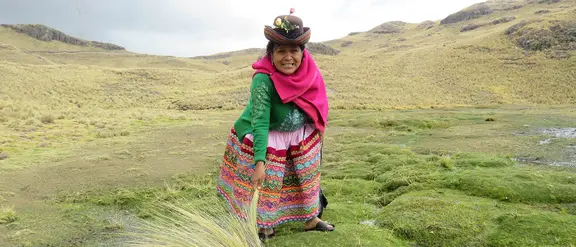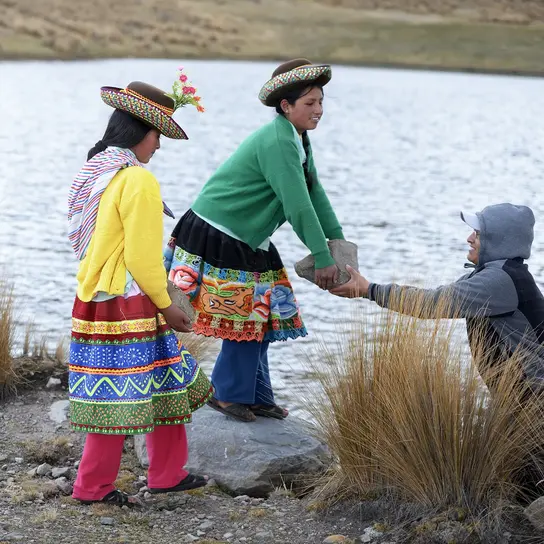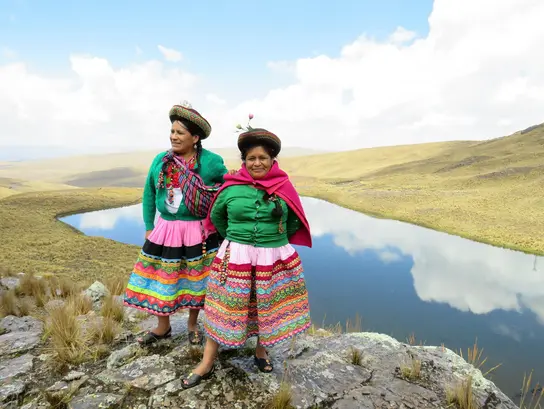Peru: With traditional knowledge, defy climate change
The municipality of Quispillacta is at 2,500 to 4,500 meters. Marcela and Magdalena Machaca have researched the experiences of the small farmers with local water sources and plants. Now these findings ensure the diet of numerous families.
"We live in the mountains and the snow on the peaks has always been our natural water source. In the dry season we rely on the streams and sources that arise from the thaw. But many mountains are no longer snow -covered and the glaciers are also melting." Magdalena Machaca is worried. "Climate change also leads to storms and heavy rain. Harvest failures and reductions in earnings occur," she says. "Many families don't know if they will have enough to eat throughout the year."
Your support for strong children!The consequences of climate change make people difficult in the Andes. But Quispillacta, the home community of Magdalena and Marcela Machaca, is comparatively good. Because in 1991, after studying agricultural sciences, the two sisters founded the "Asociación Bartolomé Aripaylla", ABA for short. The support from terre des hommes began a year later. The Machaca sisters primarily rely on the traditional ecological knowledge of the indigenous communities in order to improve water management and thus the earnings.
"We spoke to the elders to find solutions to the problem of drought times," recalls Magdalena Machaca. "And we discovered the› Qucha Ruway ‹ - a practice that makes it possible to store rainwater in lagoons and at the same time maintain nature and biological diversity. We use clay, stones and plant material for the dams. Certain algae promote infiltration. All of the young people and the children help."
"We have become more resilient against climate change."
In the meantime, ABA has created more than 120 ponds together with the village communities and attached their banks so that the fall rain can be collected. The water seeps deep into the ground and fills the groundwater tank. With its long roots, the Putaqa plant can pull the groundwater to the surface where it is needed. Many families have created such a “Putaqa source”. "The lakes can at least partially
replace the ecological function of the disappeared glaciers," says Magdalena proudly. "This means that the farming families can also maintain their food production in drought. We have become more resilient against climate change."
Thanks to ABA, the topic of rainwater storage has now entered Peruvian politics. Several regional governments have recognized the success of the measures and decided to implement the ABA concept in other parts of Peru. Thus, the work of ABA and Terre des Hommes has an impact far beyond Quispillacta.
Since 2022, the Logistik company Dachser SE has supported the project with the aim of training young people as community consultants. These are intended to pass on techniques of rainwater extraction to the same age in other districts and provinces that are not directly involved in the project and thus contribute to solving the problem of water shortages.


